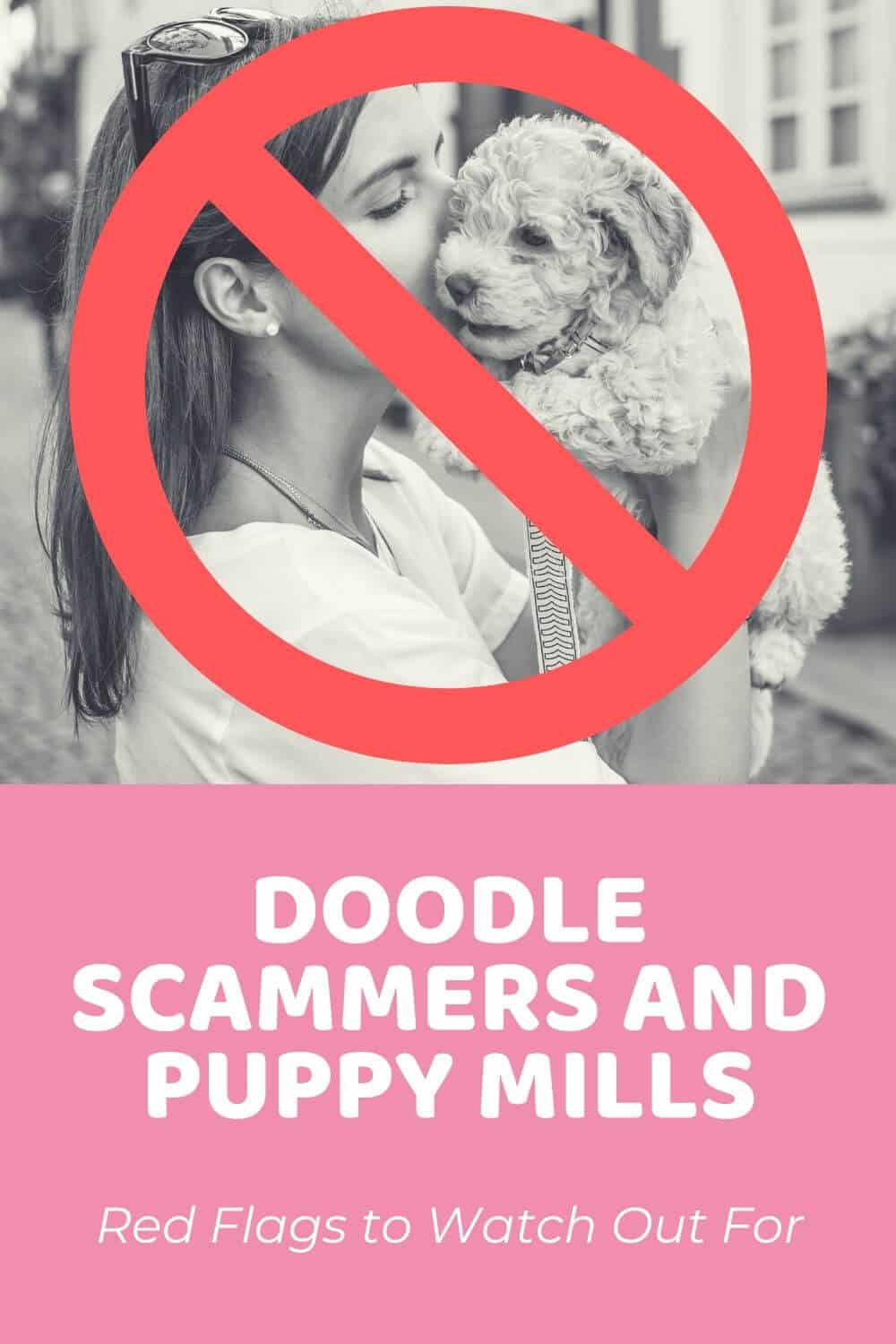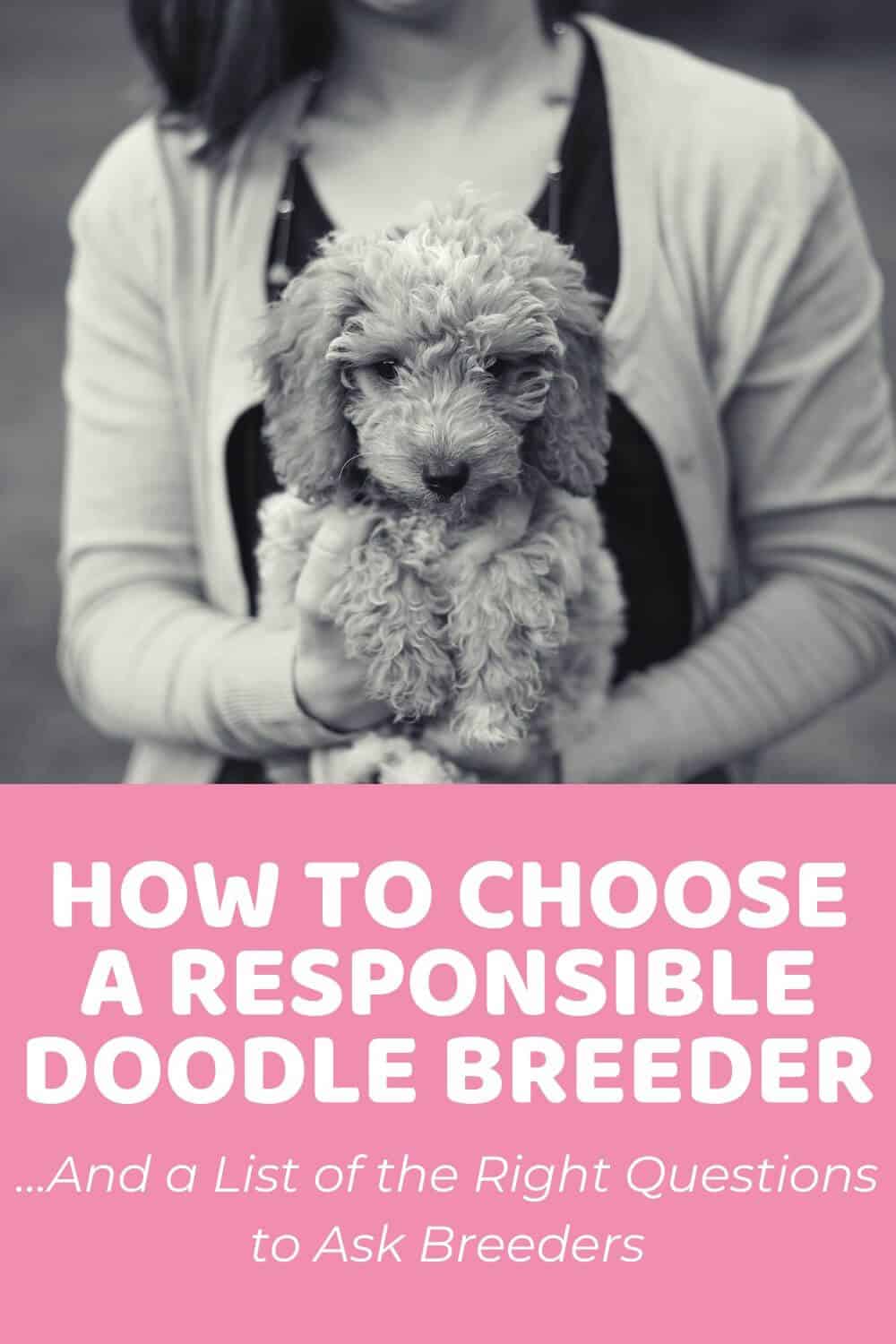If you’re on the search for your puppy, you’re probably facing the difficult task of trying to find a suitable breeder to adopt your new puppy from. Unfortunately, not all breeders are cut from the same cloth, nor do they follow the same guidelines when it comes to breeding puppies. In this guide, we explore the difference between a reputable breeder vs puppy mill, so that you can make the right decision when it’s time to bring your new four-legged pal home. Let’s get into it!
Table of Contents
- Responsible Breeder vs Puppy Mill: Introduction
- What Is A Puppy Mill?
- What Is A Responsible Breeder?
- Responsible Breeder vs Puppy Mill: What’s The Difference?
- Puppy Mill vs Breeders: How To Identify A Puppy Mill?
- Why Are Reputable Breeders More Expensive Than Puppy Mills?
- Responsible Breeder vs Puppy Mill: Frequently Asked Questions
Responsible Breeder vs Puppy Mill: Introduction
Although it may seem like all breeding businesses operate in the same, or at least similar way, that’s not actually the case. Indeed, there are countless reputable breeders that follow ethical breeding guidelines. However, the market is also saturated with numerous unethical breeding operations, also known as puppy mills.
Knowing which breeders are actually worth your time and trouble, and which ones are not, is not an easy task by no means. Especially if it’s your first time adopting a puppy. Due to the growing demand of puppies, and especially some designer breeds like Poodle mixes, the market has also attracted countless puppy mills and unethical breeders that are in it for their own financial gain. Unfortunately, this will often leave their customers with endless disappointments and immeasurable heartache.
So, responsible breeder vs puppy mill – what’s the difference between these seemingly similar breeding facilities? That’s exactly what we’re going to discuss in this guide. Fortunately, there are many ways you can determine whether or not you’re dealing with a puppy mill. Or, if you’ve gotten lucky and stumbled upon a responsible dog breeder. In this guide, we’ll talk about every single aspect that’ll help you make the right decision.
What Is A Puppy Mill?
As you’ve probably gotten the hint already, a puppy mill is definitely not a place you should adopt a puppy from. But, what’s a puppy mill exactly anyway? A puppy mill is a breeding facility where dogs are bred in an unethical and often intensive manner.
These breeding facilities have very little regard for their puppies’ and dogs’ well-being. In puppy mills, the mama dogs are often overbred to ensure that there’s constant availability of new litters. Needless to say, these mama dogs are often sickly, weak, and don’t get nearly enough care and attention as they deserve. Not to mention, it’s highly risky to over breed them with no time in between the litters.
The puppies are often born into absolutely horrible and unsanitary conditions. This in turn paves the way to diseases, but also exhaustion and malnutrition. In addition, puppy mills often inbreed their dogs and never health screen their parents. Consequently, their puppies often suffer from severe health conditions. What’s more, these so-called breeders do not care for their dogs’ or puppies’ emotional wellbeing, which usually results in lasting and severe emotional and mental health issues that are very hard to tackle later on in life.
What Is A Responsible Breeder?
Now that we’ve discussed a little bit about puppy mills, it’s time to talk about responsible breeders. So, what is a dog breeder? A responsible breeder follows ethical breeding guidelines to ensure the health and well-being of their puppies and dogs.
Responsible breeders produce their litters in a humane manner. This means that they provide their dogs and puppies a safe and nurturing home environment to thrive in. Moreover, they put great emphasis on proper veterinary care, a healthy and balanced diet, but also early training and socialization. All of this ensures that their puppies are set up for success and that they’re well taken care of whilst in the care of the breeder.
Responsible dog breeders do not overbreed their mamas or use inbreeding practices. Instead, their goal is to always strive for the best quality in terms of health and wellbeing of their dogs and puppies. Most importantly, ethical breeders extensively health and DNA test their breeding dogs before producing any litters to ensure that the parents are free from any genetic illnesses that could be passed onto the offspring.
In addition to the above, a responsible breeder will always be open and honest about their breeding practices and adoption policies. They’ll gladly answer any and all questions that you might have, and provide detailed information about the parents, their health testing, the puppies’ vaccinations, and any other information you’d be interested to learn.
Responsible Breeder vs Puppy Mill: What’s The Difference?
Although we discussed the main differences between a responsible breeder vs puppy mill, there are actually a ton of things to take into consideration when planning to adopt a new puppy. Let’s now take a closer look into all the different aspects that set reputable breeders apart from puppy mills.
Responsible Breeders Are Transparent About Their Premises & Puppy Parents
Responsible breeders are always open and transparent about their breeding facilities, puppies, and puppy parents. If you’ve got any questions regarding these topics, they’ll be more than happy to answer your concerns.
Responsible breeders will be upfront about how and where they whelp and raise their puppies – this is typically done in a warm, safe, and clean home environment, where the puppies are under constant supervision and care. This will also help them to get adjusted to a regular home environment with all of its sights, sounds, and experiences!
Moreover, responsible breeders will also provide you detailed information about their parents’ health testing results, age, size, and other details. Many reputable breeders even state how many litters they let each mama dog breed before retiring them. More often than not, they have photos and information about their breeding dogs on their websites. In contrast, puppy mills never provide this information, or are very reluctant to do so.
All of this information is crucial if you’re planning to adopt a new puppy from a breeder. However, if the breeder is not willing to answer your questions or provide you in-depth information about their breeding practices, it’s a huge red flag to look out for.
What If You Want To Visit The Breeder?
Indeed, it’s only natural that you’d like to visit the breeder to see the parents and puppies yourself. After all, how can you make the decision if you haven’t seen the parents nor the puppies?!
In fact, some resources might say that responsible breeders will always welcome you to visit their facilities, whereas puppy mills never do. However, there’s no basis to this argument, as certain viruses and bacteria, such as parvo, are extremely dangerous and highly contagious. That’s why you should respect the breeder’s visitation policies – if they don’t allow visitation before the adoption day, it’s usually to keep their puppies safe from dangerous diseases. But! Only if that’s their reasoning for it.
What reputable breeders do instead is that they offer multiple FaceTime calls before adoption, send you photos of the parents and the puppies, and also show you their breeding facilities. You’ll usually be allowed to visit them on Gotcha Day when picking up your new pup.
Professional Breeders Are Affiliated With Reputable Organizations, Puppy Mills Have A Kennel License
Another key difference between a reputable breeder vs puppy mill is that reputable breeding programs are often (but not always!) affiliated with well-known organizations that are committed to responsible dog breeding practices. Some of these organizations include the American Kennel Club (AKC), Continental Kennel Club (CKC), or the Good Dog’s Responsible Breeding Program. There are also various other breed-specific clubs and organizations, such as the Goldendoodle Association of North America (GANA) or the Worldwide Australian Labradoodle Association (WALA), to name a few.
All of these organizations require their members to adhere to their strict breeding guidelines, including extensive health and genetic testing protocols, but also protocols regarding the puppies’ health, training, and socialization.
In contrast, puppy mills often hype themselves up due to having a kennel license, which does not indicate that you’re dealing with a responsible breeder by any means. A kennel license is usually given out by a local state government. A kennel license means that a facility has the permission to keep a certain number of dogs on their premises. Nothing else!
You Get Health Guarantees From A Responsible Breeder
One of the most important differences between puppy mills vs breeders that follow responsible breeding guidelines is their health testing protocols and health guarantees. As we discussed earlier, health screening is key in responsible dog breeding, as this helps to ensure that the potential parents are fit for breeding new litters and don’t carry any potential genetic conditions. Needless to say, a responsible breeder will be more than happy to provide you with proof of DNA and health testing, whereas a puppy mill will not.
Additionally, responsible breeders offer health guarantees to back their program and promises. These health warranties usually cover genetic and congenital health issues for a certain amount of time – usually for one or two years from adoption, but sometimes even more than that. Be sure that the health guarantee comes in written format. Otherwise, you have no legal ground to stand on!
Of course, a reputable breeder will also provide you with all of the health records of both the parents and the puppy, including vaccination and deworming information, when you purchase a puppy from them. Finally, reputable breeders will often offer you a lifetime support in case you have any questions or concerns about raising your puppy.
Reputable Breeders Only Provide A Few Select Breeds
Another difference between a puppy mill vs reputable breeder is how many breeds they specialize in. Technically, we cannot even say that puppy mills specialize in anything other than constant overbreeding and mistreatment of animals, but let’s leave it at that for now.
Reputable breeders usually specialize in only a few breeds and dive deep into knowledge of those breeds. This allows them to keep tight control over the quality of the puppies they produce, and ensure that they work towards bettering the breed standard. In fact, many ethical breeders specialize in just one specific breed altogether.
Responsible breeders don’t breed just for profit, but instead ensure that the puppies are bred for their conformation, temperament, health, and overall well-being. By focusing on fewer breeds, they are able to maintain their standards while protecting the integrity of the breeds they work with.
In contrast, puppy mills usually offer numerous different breeds and crossbreeds. If you notice that a breeder has a long-long list of breeds available on their website, it’s a huge red flag! By the way, you won’t even be able to know if the puppy you’re getting is a certain purebred dog or a crossbreed at all. There are no guarantees whatsoever.
Reputable Breeders Screen Their Buyers
Reputable breeders screen their potential buyers to make sure they are placing their puppies in the right homes. You’ll usually have to first fill out a questionnaire with tons of different questions about your living arrangements and some basic knowledge about dog ownership. Only then will a reputable breeder contact you in person to discuss adoption further and save you a spot on their waitlist.
Furthermore, many ethical breeders also conduct temperament testing and overall observe their puppies’ temperaments and personalities to match each puppy with the most suitable home. This ensures that every puppy buyer gets a perfect match considering their lifestyle, family dynamics, and other factors.
That’s because the breeder often knows more about their animal’s behavior and potential lifelong needs than the buyer does. So it’s important for them to find out as much as possible about their prospective new owners before the adoption. Breeding is a serious business, and responsible breeders take the task of placing their puppies extremely seriously.
On the other hand, puppy mills never screen their buyers, and they usually give their pups up for adoption on a first come, first serve basis, with no questions asked from the buyer. Again, this is a huge red flag, as it indicates that the breeder has no concerns where their puppies end up. Meanwhile, reputable breeders care deeply where their puppies go, as they consider all of them as their own family up until adoption.
Dogs Are Always Available For Purchase At Puppy Mills
If you’re looking for a clear sign that you’re dealing with a puppy mill, then go have a look at their puppy availability. Puppy mills have constant availability of puppies, and there are no waiting lists that you have to sign up for. This indicates that they overbreed their mothers and that they keep numerous parent dogs on their premises. Indeed, this is a great way for them to make money, as people tend to be impatient and want to get a puppy immediately. But, if you’re serious about adopting a new pooch, patience is key.
Although sometimes reputable breeders do have puppies for sale immediately, that’s more of a rare occurrence. Typically, reputable breeders have long waitlists, sometimes filled for months, even years in advance. There are a few reasons for that. First of all, they usually have a limited number of breeding dogs who are able to produce new litters. Secondly, they only let their mamas breed a litter a year, and three to four litters in their lifetime before retiring. Mamas need their rest after carrying and giving birth to their babies, so it’s vital that a breeder takes this seriously.
Lastly, as reputable breeders raise their puppies in their own homes, they want to make sure that they can provide each puppy undivided attention and care during this delicate lifestage. As you can imagine, if there are multiple litters born at once, they’re bound to be neglected in some way.
Puppies At Puppy Mills Leave Their Mothers Too Early (Early Weaning)
Early weaning is another issue that’s inherent to puppy mills. Puppies from puppy mills are often taken away from their mothers too early. This practice deprives the puppies of crucial time spent with their mothers, which is important for both emotional and physical development.
For the first two weeks from birth, puppies are extremely dependent on their mothers, including food. By the way, mother’s milk provides puppies with crucial nutrients and antibodies that support their growing bodies. Nonetheless, not all puppies can feed on mother’s milk, but that’s exactly why reputable breeders will then provide them with a good quality puppy milk replacer.
Additionally, puppy mills usually want to get rid of their puppies at a very young age. Obviously, this will free their facilities for the new litters that are constantly born. But as we said, it’ll also pave the way to emotional problems, such as aggressive behaviors, biting, destructive chewing, possessiveness, and even separation anxiety.
Generally, reputable breeders will send their puppies off to their forever homes around the time they’re 8 to 12 weeks of age. In contrast, puppy mills want to ship off their puppies as early as four to six weeks old.
Reputable Breeders Don’t Breed For Profit
Reputable breeders are motivated by their love of dogs and the joy of sharing a wonderful breed or two with carefully chosen people. They strive to breed healthy, happy, well-adjusted, and well-socialized puppies for loving homes. Breeding is done for the purpose of improving the bloodlines or preserving certain characteristics, rather than for profit. They take the time to carefully research pedigrees and health before breeding, even taking steps such as genetic testing to ensure the puppies have a better chance at a longer, healthier life.
On the other hand, puppy mills are driven solely by money and put absolutely no consideration into animal welfare when producing litters. As we’ve discussed in this guide, mass breeding of dogs through unethical practices often leads to severe health problems and behavioral issues.
The main selling argument of puppy mills is their low prices. Unfortunately, many people are tricked by their below average prices just for the sake of saving some cash at first. However, in the long run, they’ll usually be paying hundreds, if not thousands of dollars in medical bills and extensive dog training to fix the problems at hand. What’s worse, if the puppies are adopted by unsuitable dog owners, they often end up on the streets, in shelters, or they’re put down as no one has the patience to help them.
Nonetheless, not all puppy mills attract their customers with extremely low prices. Instead, they may even sell their puppies for just as high as reputable breeders, knowing that the prices in no way reflect the work and effort that they put into their breeding businesses.
Previous Buyers Vouch For Responsible Breeders
Another key difference between a responsible breeder vs puppy mill is that reputable breeders have a proven track record and you should have no problems when checking their credentials.
As we always say, when looking for a responsible breeder, it’s important that you do your research. Ask friends and family or visit forums to find first-hand accounts from previous buyers who can vouch for their experience with the breeder. This will help you gain a better understanding about the breeder, their practices, policies, and help you decide if you should really get in touch with them.
Responsible breeders usually have lots of happy customers who are willing to share their stories about the pups they’ve purchased and how well taken care of they were. Hearing those positive reports firsthand should give you peace of mind when making such an important decision. We usually recommend you look for reviews on Google (check Google Maps – there are usually tons of trustworthy reviews), Facebook, Yelp, but also Reddit, or even here at Doodle Doods.
Many breeders also publish their customer testimonials on their websites. However, you should take these with a grain of salt, as we all would always present only the best sides of ourselves, right?!
Responsible Breeders Know Everything About Their Litters
Lastly, responsible breeders are extremely knowledgeable about their litters and their breeds in general. They usually provide extensive information about the breed’s traits and characteristics, such as their estimated adult size, temperament, coat types and shedding levels, grooming requirements, exercise needs, intelligence, energy levels, and expected lifespan.
Also, we cannot stress enough how important it is that a breeder is willing to answer all questions you might have about their puppies and the breed in general. They’ve done extensive research before starting their breeding programs. In addition to that, they know their dogs’ health and temperaments through and through, and this will also indicate how their puppies will turn out.
A responsible breeder will also provide you with some guidelines on how to take care of your new puppy. It’s actually very common that an ethical breeder will provide you with some material on potty training, crate training, socialization, and feeding guidelines. After all, they really do care about their puppies, and they want to make sure that their pups are well taken care of even after going to their forever homes.
Puppy Mill vs Breeders: How To Identify A Puppy Mill?
When it comes to the responsible breeder vs puppy mill debate, you might be confused as to how you can identify that you’re dealing with a puppy mill anyway. Here’s a quick recap that’ll help make your puppy search much easier:
- Poor customer service: Reputable breeders are super passionate about their dogs and love interacting with potential new puppy owners. They’re also happy to answer all of your questions regarding their puppies, parents, premises, and breeding practices. If you don’t get this kind of attention from the breeder, it’s likely a sign that they are running a puppy mill.
- Limited paperwork: Reputable breeders will provide you with proof that the parent dogs have been health and DNA tested, and that their puppies have received all age appropriate vaccinations and dewormings. They may also provide proof that they’re registered with an established organization, such as the AKC. Moreover, they’ll also provide all purchase documents.
- Health guarantees: Responsible dog breeders will provide a genetic and congenital health guarantee for all of their puppies, whereas puppy mills do not. This type of health guarantee should always come in written format.
- Numerous breeds available: Puppy mills often offer numerous dog breeds and hybrid breeds for sale. Meanwhile, reputable breeders specialize in a few carefully chosen and researched breeds that they have extensive knowledge in.
- Unsanitary conditions: Puppy mills typically keep many dogs in small, overcrowded cages with little-to-no access to clean water or proper nutrition.
- Extremely young puppies for sale: This is a red flag, as reputable breeders will never let puppies go home any younger than eight weeks old.
- Constant availability: Puppy mills always have puppies “in stock”, as they generally over breed their mamas. Reputable breeders usually have long waitlists.
- High prices: Responsible breeders don’t price gouge their customers, but puppy mills know they can make more money by charging exorbitant prices for puppies of dubious quality.
Why Are Reputable Breeders More Expensive Than Puppy Mills?
Reputable breeders are often significantly more expensive than puppy mills for a number of reasons. Firstly, they extensively health and DNA test their breeding dogs before breeding any litters. As you can imagine, this process costs a lot of money for the breeder. Therefore, it will also reflect in their prices.
Reputable breeders are also extremely educated on the best breeding practices and always continue to study more by attending conferences, keeping themselves up to date on the most recent breeding practices, and keeping in touch with other reputable dog breeders.
They also provide their puppies a clean and safe home environment to grow in, and provide the puppies constant supervision, as well as proper veterinary care (this includes vaccinations, dewormings, and any other necessary procedures in case the puppies need some extra care). Additionally, reputable breeders feed their puppies high quality puppy food that’s more expensive than regular kibble at your local supermarket.
So, as you can see, all of these factors contribute to the higher cost of adopting a puppy from a reputable breeder. Still, puppy mills are not operated by dumb people. And if they have the chance, they will try to charge you the same amount as a reputable breeder would.
Responsible Breeder vs Puppy Mill: Frequently Asked Questions
The main difference between a breeder vs puppy mill is the level of care and attention given to the animals. Puppy mills are commercial operations that only care for profit, while reputable breeders prioritize the well-being of their animals by providing quality nutrition, housing, and veterinary care.
Signs of a puppy mill include: overcrowded and unsanitary cages, numerous breeds for sale, lack of veterinary care, lack of proper food and clean drinking water, and refusal to provide information about the parents.
The single best thing you can do is to never adopt from a puppy mill. For that, you need to know exactly what to look for and do your due diligence. Puppy mills are bad for dogs as their dogs and puppies are mistreated, and their puppies often come with serious health issues and behavioral problems. To help reduce the amount of puppy mills, you should either adopt from a reputable breeder or opt for an animal shelter instead of buying from pet stores or online. Additionally, spread awareness to help educate others on the importance of adopting responsibly!
Surprisingly, puppy mills are not illegal in many states in the US, and in many countries all across the globe. However, animal rights groups have advocated for stronger laws against them. There have been a few cities and states that have passed legislation to limit and regulate puppy mills, but these laws can vary by region. Currently, puppy mills are illegal in California, Maryland, Maine, Washington, Illinois, and New York (Source).
This depends on the breed (or crossbreed) you’re looking to adopt, your location, and other factors. For instance, hybrid breeds like Poodle mixes tend to cost more than purebred dogs. What’s more, many breeders will also charge more for certain coat colors, coat types, and even dog sizes – that’s if you’re looking to adopt a Doodle.
Conclusion: Don’t Support Puppy Mills, Be A Proud Pet Owner!
If you’re planning to adopt a puppy, it’s vital that you know the difference between a responsible breeder vs puppy mill. Responsible breeders take pride in their animals’ health, ethical breeding practices, and long-term care. Puppy mills are exactly the opposite, as their focus is on quantity and not quality. To ensure that you get the healthiest, happiest pup possible, be sure to research your breeder carefully and look out for any signs of an unethical breeder or puppy mill. We hope this guide has helped you narrow down your choice so you can make an informed decision when bringing home your new best pal.
Learn How to Care for Your Doodle Puppy!

Perfect for first-time Doodle parents, get ALL your questions answered, including questions new Doodle parents don’t even think to ask.
Plus, get $700 worth of Bonus Materials for FREE, including:- Doodle Parenthood Community and Support Group ($190 value)
- Doodle Puppy Growth Tracker ($20 value)
- EMERGENCY Cheatsheet: When To Call The Vet Immediately ($50 value)
- HELP! Button ($145 value)
- And SO MUCH MORE!







